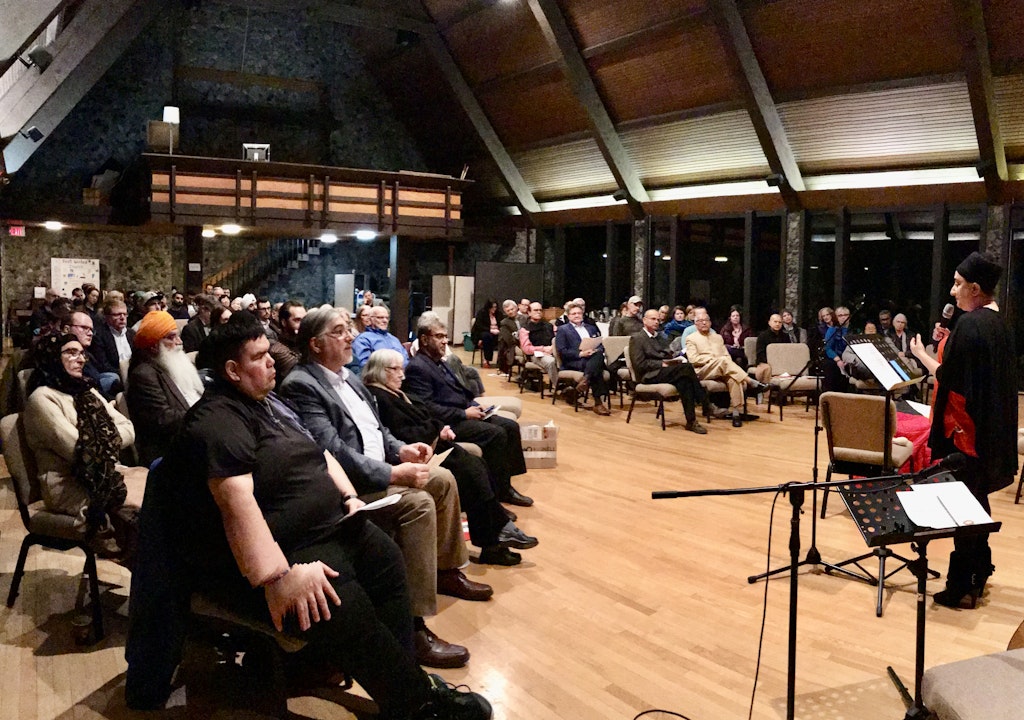In the modern discourse surrounding religious ideologies, comparisons between various faith traditions are prevalent. The Baha’i Faith stands in sharp contrast to radical interpretations of Islam, fostering a narrative that elucidates understanding, unity, and peace. This article expounds upon core Baha’i teachings that address the complexities of radical Islam while simultaneously elucidating the comprehensive framework offered by Baha’u’llah, the founder of the Baha’i Faith.
At the heart of the Baha’i teaching lies a profound assertion: that all religions stem from the same divine source, aimed at promoting the betterment of humanity. This principle stands as a pivotal differentiator from radicalism, which often seeks to compartmentalize and polarize beliefs. The Baha’i Faith posits that differences among religions should foster dialogue and mutual understanding, rather than conflict and divisiveness.
Radical interpretations of Islam frequently employ a literalistic approach to scripture, resulting in a narrow worldview. In stark contrast, the Baha’i perspective emphasizes the importance of context in understanding religious texts. Revelation is seen as progressive, with each religion building upon the previous one, culminating in a comprehensive vision of God’s will intended for the contemporary world. This notion serves to encourage adherents to embrace a more expansive and inclusive worldview, capable of accommodating diverse perspectives.
Another salient characteristic of radical ideologies is the often-misguided ethos of exclusivity. Collectives espousing radical Islam may perceive themselves as the sole possessors of truth, inherently rejecting the validity of other beliefs and pathways to the divine. Conversely, the Baha’i Faith advocates for inclusivity and the celebration of diversity. By recognizing that humanity is a tapestry of different cultures, traditions, and beliefs, Baha’is champion the importance of synergistic interactions among global citizens. This juxtaposition lays bare the vacuity of radical ideologies that thrive on isolation and ignorance.
One cannot overlook the ethical dimensions inherent in both Baha’i teachings and radical Islam. The latter’s radical offshoots often employ violence and coercion as extensions of their belief systems. Such actions directly contradict the core tenets of Islam, which advocates for peace, compassion, and justice. The Baha’i Faith also underscores the imperative of upholding justice, yet does so within a framework of dialogue and understanding, eschewing violence as a means of persuasion.
Baha’i teachings advocate for an all-encompassing peace, intrinsically rooted in the concept of oneness. This principle obligates adherents to transcend religious, ethnic, and nationalistic boundaries, promoting global harmony as an achievable reality. In contrast, radical ideologies often advocate for a dichotomous perspective of “us versus them,” leading to conflict rather than resolution. The Baha’i Faith’s commitment to world unity serves to dismantle the barriers erected by such separatist ideologies.
Moreover, the impact of education on the Baha’i worldview cannot be overstated. Education is heralded as a fundamental right and necessity for all individuals. The Baha’i teachings emphasize that the advancement of society is contingent upon the cultivation of knowledge and an understanding of diverse perspectives. In stark contrast, radical movements often suppress education, particularly for women and marginalized groups. This divergence illustrates the stark contrast in mindsets—Baha’i teachings champion enlightenment, while radical ideologies thrive in ignorance.
Another critical component in understanding the Baha’i response to radical Islam is the emphasis on the essential unity of humanity. According to Baha’i teachings, all individuals are part of a single family and, consequently, share an intrinsic responsibility toward each other. In radical interpretations of Islam, this unity is fractured, with adherents encouraged to view the “other” as adversaries. Baha’is strive to foster relationships based on respect and empathy, thereby nurturing social cohesion rather than imaginary divisions.
Furthermore, Baha’i teachings address the need for effective governance as a cornerstone of societal welfare. The Baha’i principle of consultation serves as a means to achieve collective decision-making, emphasizing the importance of inclusive dialogue that respects diverse opinions. This governance model stands in stark contrast to the authoritarianism often perpetuated by radical ideologies, where dissent is viewed as a threat rather than an opportunity for growth.
The environmental aspect of Baha’i teachings further offers a lens through which radicalism can be critically examined. The Baha’i Faith recognizes the interconnection between humanity and the environment, advocating for sustainable practices and the preservation of the planet. In contrast, radical movements, focused on ideological domination, often neglect the urgent issues facing modern society, including ecological degradation. Addressing these challenges through a Baha’i lens reveals a commitment to future generations and global responsibility.
In sum, the Baha’i perspective on radical Islam provides a comprehensive framework predicated on unity, love, and understanding. The teachings emphasize the interconnectedness of all religions and advocate for an inclusive approach to spirituality that fosters peace and dialogue. By promoting education, justice, and the essential oneness of humanity, Baha’is aspire to counteract the exclusionary and violent tendencies often propagated by radical ideologies. This multifaceted approach underscores a hope for a harmonious global society where diversity is celebrated, and mutual respect reigns supreme.
